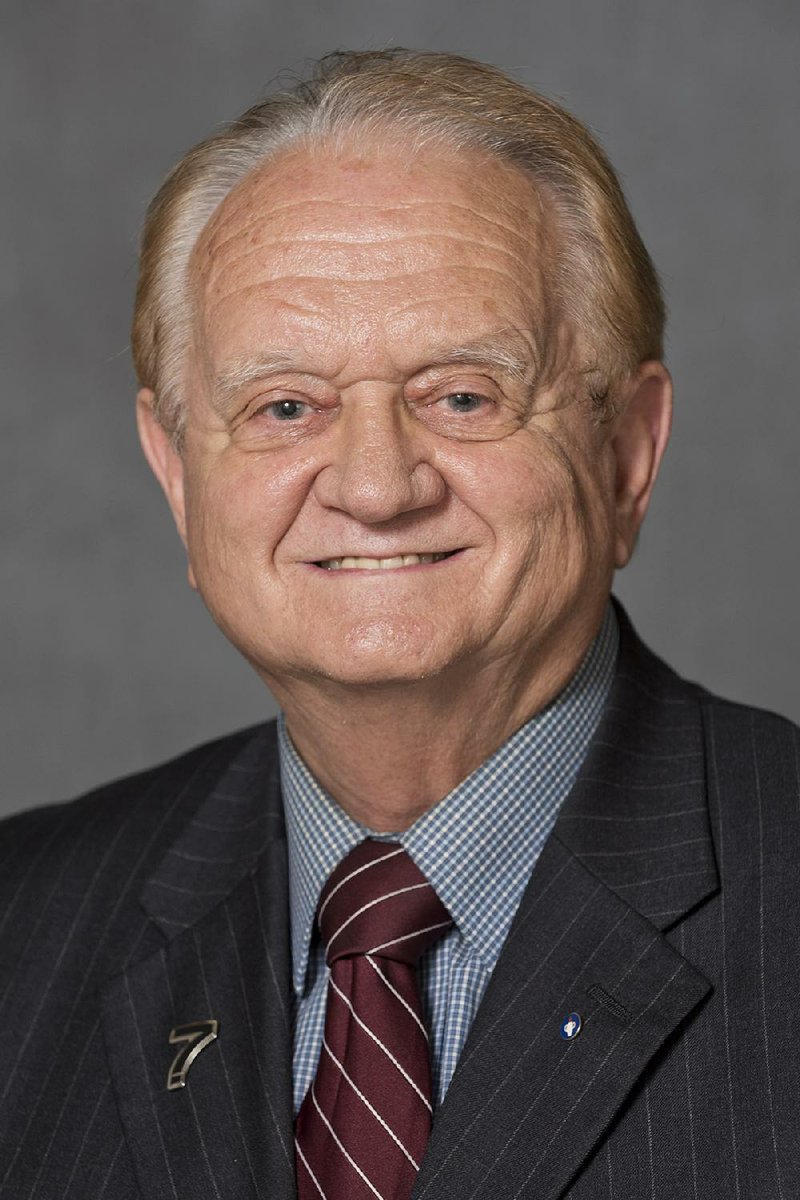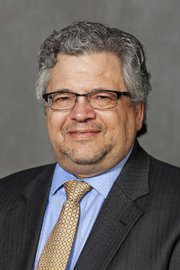A former military attorney, a public defender and a state agency administrator are vying for the same open seat on the state Court of Appeals.
In the race to succeed Judge Mike Kinard are James McMenis of Smackover, Mark Klappenbach of Fordyce and Job Serebrov of Sheridan. Combined, they have more than 100 years of experience in the legal field.
The nonpartisan judicial general election is March 1. A runoff, if necessary, will be held Nov. 8.
Kinard is ineligible to run for the court's District 5 position because he was appointed by Gov. Asa Hutchinson early in 2015 to replace Robin Wynne, who became a justice on the Arkansas Supreme Court.
District 5 encompasses 13 counties extending south from Grant County and stretching west to east from Lafayette County to Ashley County.
The Court of Appeals is the state's second-highest appellate court and has 12 judges. They serve eight-year terms and are each paid $161,500. The chief judge earns $164,000 a year.
McMenis, 67, has been practicing law since graduating from the University of Arkansas School of Law in 1973. He joined the U.S. Army and became a member of the Judge Advocate General's Corps.
He's the son of a pastor, and McMenis said his father and others close to him were perplexed by his decision to go to law school.
But, a law career gave him the opportunity to help people, the way his father did, but without making a commitment to the ministry.
"At the time, I didn't know what lawyers did except they made wills, did probate work, helped people with debtor issues," McMenis said. "The law kind of spoke to me as a way to help average, everyday citizens out there. ... My dad drove people to doctors, he was there when someone died. As a lawyer, when one of my client's parents died, I was one of his first calls. Not just for a law question, but because we were friends."
After joining the Army, McMenis had several assignments that took him to different parts of the country. In the final 10 years of his service, he was an attorney for the Department of Defense and handled legal issues for military support in Homeland Security, as well as military responses to hurricanes and riots in Los Angeles.
Although he was working out of state, McMenis kept paying taxes in Arkansas and returned to his native state to help a friend at his law practice in El Dorado. A seventh-generation Arkansan, he lives in Smackover.
Eventually, McMenis said he felt a call to public service. He ran for state representative twice as a Democrat, and lost in 2008 and 2012.
The Court of Appeals, he said, is another such opportunity to serve, one he hadn't seriously considered until he was approached by several fellow attorneys who encouraged him to run.
He said his experience in the military, as well as years spent handling various parts of the law in general practice at his firm in El Dorado, make him an ideal candidate for handling appeals of criminal and civil cases.
"People in the hinterlands are like my dad. They don't necessarily trust judges or lawyers," McMenis said. "I think the system works. It's not a perfect system, but there are checks and balances. ... It's a system that works, but it can change to meet the needs of the people who come before the court."
McMenis believes that the judiciary should use restraint and, as an appellate judge, he would be prudent in his deliberations.
"I don't see our job as reversing all of those circuit judges from the 75 counties, but to review the record to ensure the record supports an appeal. ... If in finding it doesn't, then I have no problem with reversing a judge that didn't apply the law correctly," he said. "He's the one in the courtroom. Not us. We're just getting a black-and-white printed page."
Klappenbach, 56, has a private law practice in Fordyce, the same town where he graduated from high school in 1978. Klappenbach is the president of the Fordyce School Board.
A graduate of the University of Arkansas in Little Rock School of Law in 1984, Klappenbach first worked as an accountant, then started a general law practice in 1991.
Klappenbach served as a deputy prosecutor in Dallas County, where he handled a range of cases. In 2008, he became a deputy public defender and is a certified death-penalty defense attorney.
It's that rounded experience, he said, that would make him a strong appeals judge.
"I feel that [many current judges] lack the recent private practice or recent law practice. A lot of [Appeals Court judges] have been [trial] judges and gone up from that," Klappenbach said. "I just think someone who's been in the real world like me, both in criminal practice and the general practice, that'd be beneficial to the bench."
Like McMenis, Klappenbach has never sat as an elected judge, but he doesn't see that as a problem.
"I know the court rules. I know the research," he said. "I understand laws, the Constitution and court precedent. ... I'll be impartial to both sides and base my decision on the Constitution."
Klappenbach added that it would be beneficial to voters to have an appeals judge who truly knows the area he represents.
"I don't want to take a swing at anyone," he said. "But they set [the Court of Appeals] up to be in districts so [people] could be represented by someone from their district."
Serebrov, 56, was unable to meet for an interview but provided emailed responses to questions from the Arkansas Democrat-Gazette.
Serebrov, a New Jersey native, has clerked for a federal judge, administered government agencies and is an acting appellate judge for an American Indian tribe in California.
A 1984 graduate of Washburn University School of Law in Topeka, Kan., Serebrov got his start in private practice in Northwest Arkansas.
He clerked for U.S. Circuit Judge Lavenski Smith in 2004 before taking an appointment under then-Gov. Mike Huckabee in 2006 as a deputy director at the Arkansas Department of Environmental Quality. After that, Serebrov was appointed by then-President George W. Bush as a deputy general counsel at the U.S. Department of Agriculture.
With a career steeped in regulatory work, Serebrov wrote that he has "an understanding of how laws and regulations are shaped at the most foundational level. That understanding is an essential part of virtually all civil and criminal cases."
In 2009, he was appointed as an appellate judge for the San Manuel Tribal Court in California, and for the past two years he has been the head judge.
He founded and chaired the Arkansas Bar Association's Appellate Practice Committee and contributed to the legal handbook, "Handling Appeals in Arkansas."
Serebrov described the Court of Appeals as the "workhorse" of the state judiciary, and said his experience in appellate work and as an administrator would help keep operations running smoothly.
"Of the three candidates running for this position, I am the only one who is an appellate judge," Serebrov said. "Something people often forget is that an appellate judge does more than sit on a bench. ... Arkansas appellate judges produce four opinions a week. This is not a place for on-the-job training."
Serebrov was appointed by Gov. Asa Hutchinson to his current job as director of the Office of Quality Assurance at the Department of Human Services.
While Serebrov has been nominated for jobs by several Republicans, he said, there is no place for politics in the courtroom.
"The last time I looked, party affiliation is not cited in legal briefs, so a judge has no clue which party a plaintiff or defendant aligns with, and party affiliation isn't germane to a case," Serebrov wrote. "When I clerked for [Smith], I abstained from all political activity. This is a non-issue."
SundayMonday on 02/07/2016



